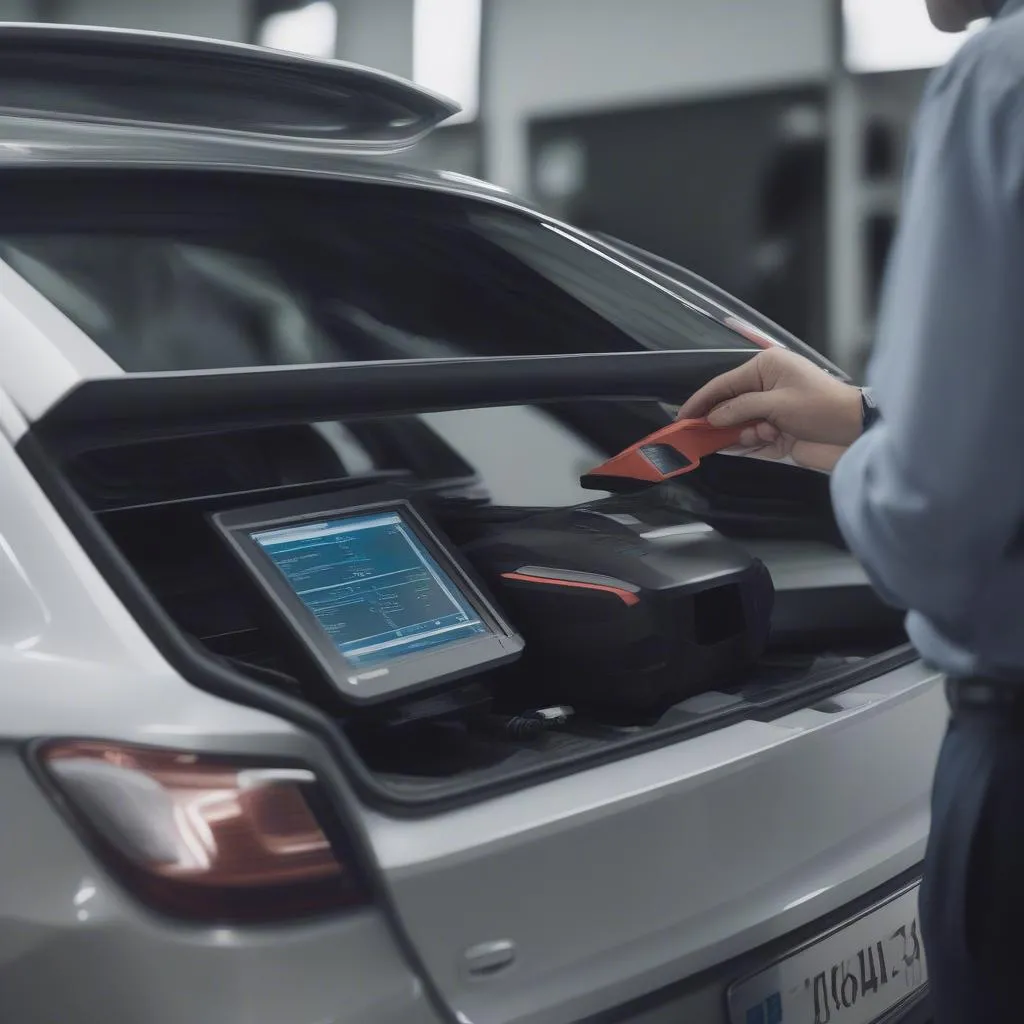Imagine this: you’ve been meticulously maintaining your car, taking it for regular services, and you’re confident it’s in top condition. Then, the dreaded day arrives: the emissions test. Your heart sinks as the results come back – your car fails. You’re left scratching your head, wondering what went wrong and what you can do to fix it.
This scenario is a common nightmare for car owners, but it can be avoided with the right tools and knowledge. The key is to use a specialized diagnostic tool that can effectively scan your car’s emission systems and identify any potential issues before you even reach the testing center.
Understanding the Importance of Emissions Testing
Emissions testing is crucial for environmental protection and public health. It ensures that vehicles meet certain standards to minimize harmful pollutants released into the atmosphere. Failing an emissions test can result in fines, denied registration, and even the inability to drive your car legally.
From a technical standpoint, emissions tests check the efficiency of various systems, including the catalytic converter, oxygen sensors, and exhaust gas recirculation (EGR) system. These systems work together to reduce harmful emissions like carbon monoxide, nitrogen oxides, and hydrocarbons.
The Power of Diagnostic Tools: Unlocking Your Car’s Secrets
A diagnostic tool can be your secret weapon in ensuring your car passes its emissions test. These tools connect to your car’s onboard computer system (OBDII port) and provide valuable information about the status of various systems, including emission-related components.
Types of Diagnostic Tools
Several types of diagnostic tools cater to different needs and budgets. Here are some of the most common:
- Generic OBDII Scanners: These are widely available and affordable, providing basic information such as engine codes and data readings. They are suitable for general diagnostics but may not be comprehensive enough for complex emissions issues.
- Dealer-Level Scanners: These are more advanced tools designed for professional mechanics. They offer more in-depth diagnostic capabilities, allowing them to access more sophisticated systems and data within the vehicle’s computer. This includes specific features like emissions test readiness checks and emissions data logging.
- Specialty Scanners: Some scanners are specifically designed for certain car brands or models. These tools often offer even more detailed information and diagnostic functions tailored to the specific vehicle’s systems.
The Benefits of Using a Diagnostic Tool
- Early Problem Detection: Scanners can detect potential issues early on, allowing you to address them before they become serious and result in an emissions failure.
- Accurate Troubleshooting: By analyzing the data retrieved, you can pinpoint the exact cause of an emissions problem and take appropriate action.
- Cost-Effective Repair: Early detection and accurate diagnosis often lead to more affordable repairs, preventing unnecessary work or replacements.
- Peace of Mind: Knowing your car is in good working order before the test can give you peace of mind and reduce anxiety.
Finding the Right Tool for Your Needs
Choosing the Right Tool for Your Car
It is crucial to select a tool compatible with your car’s model and year. Newer vehicles typically use the OBDII port, a standardized diagnostic interface. However, some older vehicles may require specialized adapters.
Consulting Professionals
If you are unsure about the tool you need, it’s always wise to consult with a qualified mechanic or an automotive specialist at a dealership. They can guide you towards the best option for your car and ensure that you choose a tool compatible with its systems.
Investing in a Dealer-Level Scanner for European Cars
If you own a European car, especially a model like the BMW 3 Series or Audi A4, a dealer-level scanner like the can be a valuable investment. These tools are designed to handle the complex electronic systems in European vehicles and offer a wide range of diagnostic features.
Going Beyond the Basics: Leveraging Your Diagnostic Tool
Emission Test Readiness Checks
Many dealer-level scanners, like the , include a specific feature that allows you to check if your car is ready for an emissions test. This feature evaluates the readiness of various emission-related systems to ensure they are functioning correctly.
Data Logging and Analysis
Sophisticated scanners can also record data related to your car’s emissions over time, allowing you to analyze trends and patterns. This can be particularly helpful in identifying intermittent problems that may not be readily apparent during a standard emissions test.
Pro Tips for Using Your Diagnostic Tool
- Read the Instructions: Familiarize yourself with the tool’s user manual before using it. This will help you understand its functions and how to interpret the data it provides.
- Connect Safely: Ensure the tool is correctly connected to the OBDII port and that there is a stable electrical connection.
- Clear Codes: After diagnosing and addressing any issues, remember to clear the diagnostic codes stored in the vehicle’s computer. This prevents the codes from reappearing and causing unnecessary concern.
- Consult a Professional: If you encounter complex issues or are unsure about the interpretation of the data, it’s always best to consult with a qualified mechanic for assistance.
Frequently Asked Questions
Q: Can I use a generic OBDII scanner to check for emissions readiness?
A: While some generic scanners may offer basic emissions data, they may not have specific emissions test readiness checks. For the most accurate and complete assessment, a dealer-level scanner is recommended.
Q: What if my car fails the emissions test even after using a diagnostic tool?
A: If your car fails, a diagnostic tool can help pinpoint the exact problem. You can then take it to a mechanic for a thorough inspection and repair.
Q: Can I find out the exact passing requirements for emissions testing in my state?
A: Yes, each state has its own emission standards and testing procedures. Check your state’s Department of Motor Vehicles website or contact your local emissions testing center for specific information.
Conclusion
Using a diagnostic tool can be a game-changer in ensuring your car passes its emissions test. By equipping yourself with the right tools and knowledge, you can avoid unnecessary stress and ensure your vehicle is running smoothly and efficiently. Remember, investing in a quality diagnostic tool, like a dealer-level scanner for European cars, can save you time, money, and potentially even a lot of frustration.
Need help choosing the right diagnostic tool or have questions about emissions testing? Contact us via WhatsApp: +84767531508 to connect with our team of automotive experts. We are available 24/7 to provide guidance and support.



